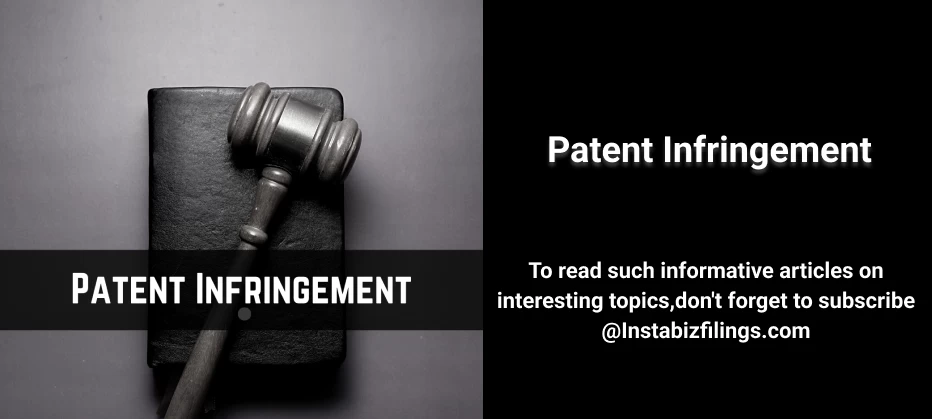
Patent Infringement
October 15, 2025 by Team Instabizfilings
What Is Patent Infringement?
Patent infringement occurs when a third party makes, uses, sells, or imports a patented invention without the permission of the patent holder. Under Section 48 of the Indian Patents Act, 1970, patentees have the exclusive right to:
-
Make, use, offer for sale, sell, or import the patented product or process in India.
-
Prevent others from doing the same without consent.
Infringement can be:
-
Direct: Unauthorised use of the patented invention.
-
Indirect: Contributing to or inducing infringement by others.
Legal Framework in India
Key Provisions
-
Section 48: Grants exclusive rights to patentees.
-
Section 107A: Provides exemptions for research and development activities.
-
Section 100: Allows government use of patented inventions under certain conditions.
-
Section 108: Enables patentees to initiate infringement suits in civil courts.
Enforcement
- Patent infringement suits are typically filed in:
-
District Courts: For cases involving smaller claims.
-
High Courts: For cases involving larger claims or complex issues.
- The courts can grant:
-
Permanent Injunctions: To prevent further infringement.
-
Damages or Accounts of Profits: To compensate the patentee.
-
Destruction of Infringing Goods: To eliminate counterfeit products.
Defences Against Patent Infringement
Common defences include:
-
Non-Infringement: Arguing that the defendant's product or process does not fall within the scope of the patent claims.
-
Invalidity: Claiming that the patent is invalid due to lack of novelty or inventive step.
-
Bolar Exemption: Using the patented invention solely for research and development purposes.
-
Government Use: Use of the patented invention by the government under Section 100.
-
Innocent Infringement: Demonstrating that the infringement was unintentional and without knowledge of the patent.
Recent Case Law
- Natsoft vs. Hexaware Technologies : In October 2025, U.S.-based Natsoft and its subsidiary Updraft sued Mumbai's Hexaware Technologies in the U.S. for $500 million, alleging patent infringement. This case underscores the increasing importance of international patent enforcement and the potential financial stakes involved.
- Communication Components Antenna Inc. v. Ace Technologies Corp : In April 2023, the Delhi High Court upheld a finding of patent infringement in favor of Communication Components Antenna Inc., a Canadian-American company, against Ace Technologies Corp., a Korean firm. The court emphasized that a known product, when specifically modified to provide a specified result of economic value, can be considered patentable.
- ER Squibb & Sons v. Zydus Lifesciences : In July 2025, the Delhi High Court granted an interim injunction in a patent dispute concerning biosimilars, marking a significant development in patent jurisprudence in India.
Recent Developments
-
Patent Amendment 2025: Introduced to strengthen intellectual property protection and streamline the patent process in India.
-
CRI Guidelines 2025: Updated guidelines for the examination of computer-related inventions, including AI and software patents.
Disclaimer
The information provided in this blog is purely for general informational purposes only. While every effort has been made to ensure the accuracy, reliability and completeness of the content presented, we make no representations or warranties of any kind, express or implied, for the same.
We expressly disclaim any and all liability for any loss, damage or injury arising from or in connection with the use of or reliance on this information. This includes, but is not limited to, any direct, indirect, incidental, consequential or punitive damage.
Further, we reserve the right to make changes to the content at any time without prior notice. For specific advice tailored to your situation, we request you to get in touch with us.

Need more details? We can help! Talk to our experts now!
Start Your Business Registration – Talk to Our Experts Now!

Still Confused?
Talk to experts? Fill in the information and we will reach out in 24 Working Hours.

